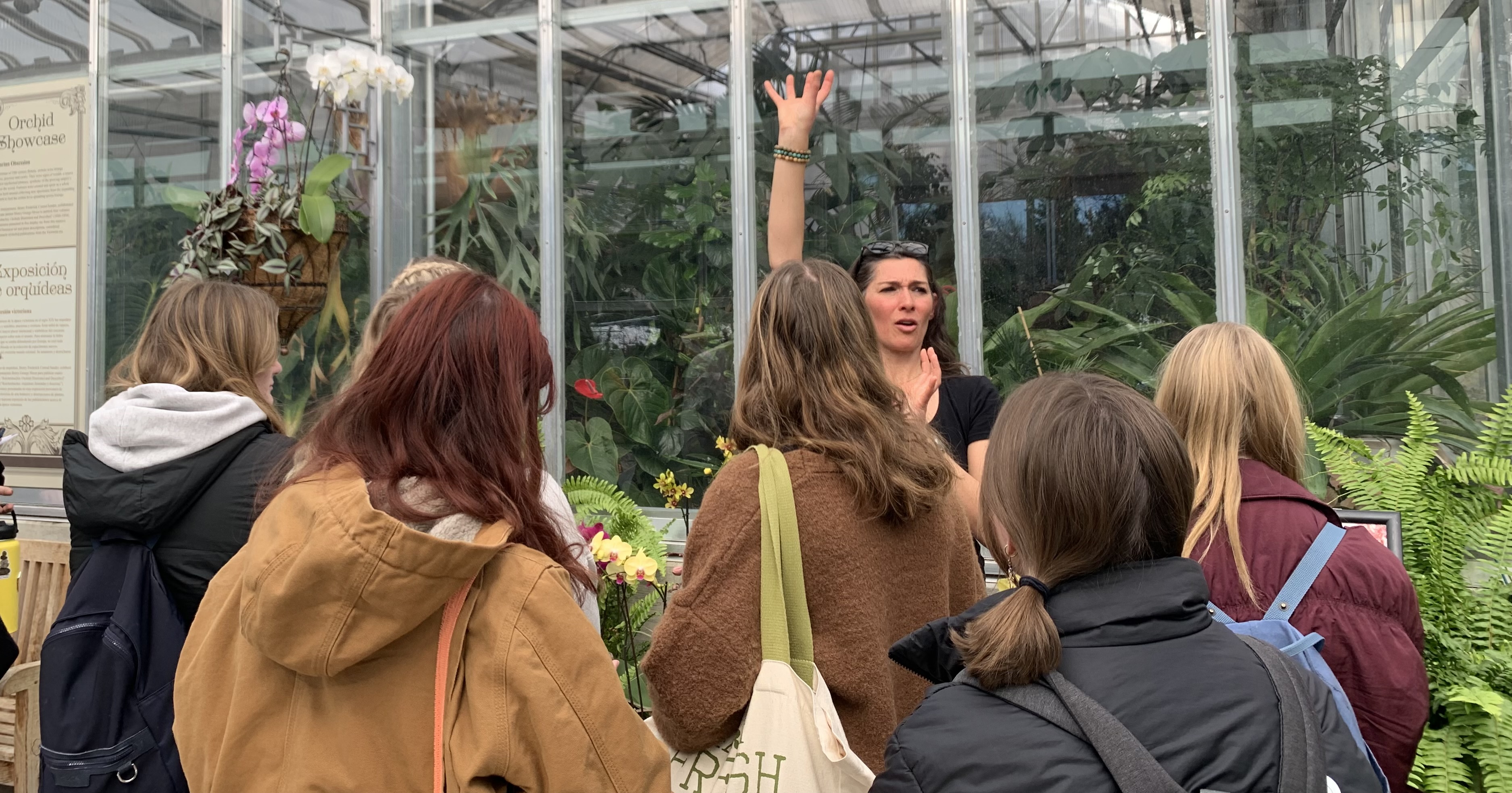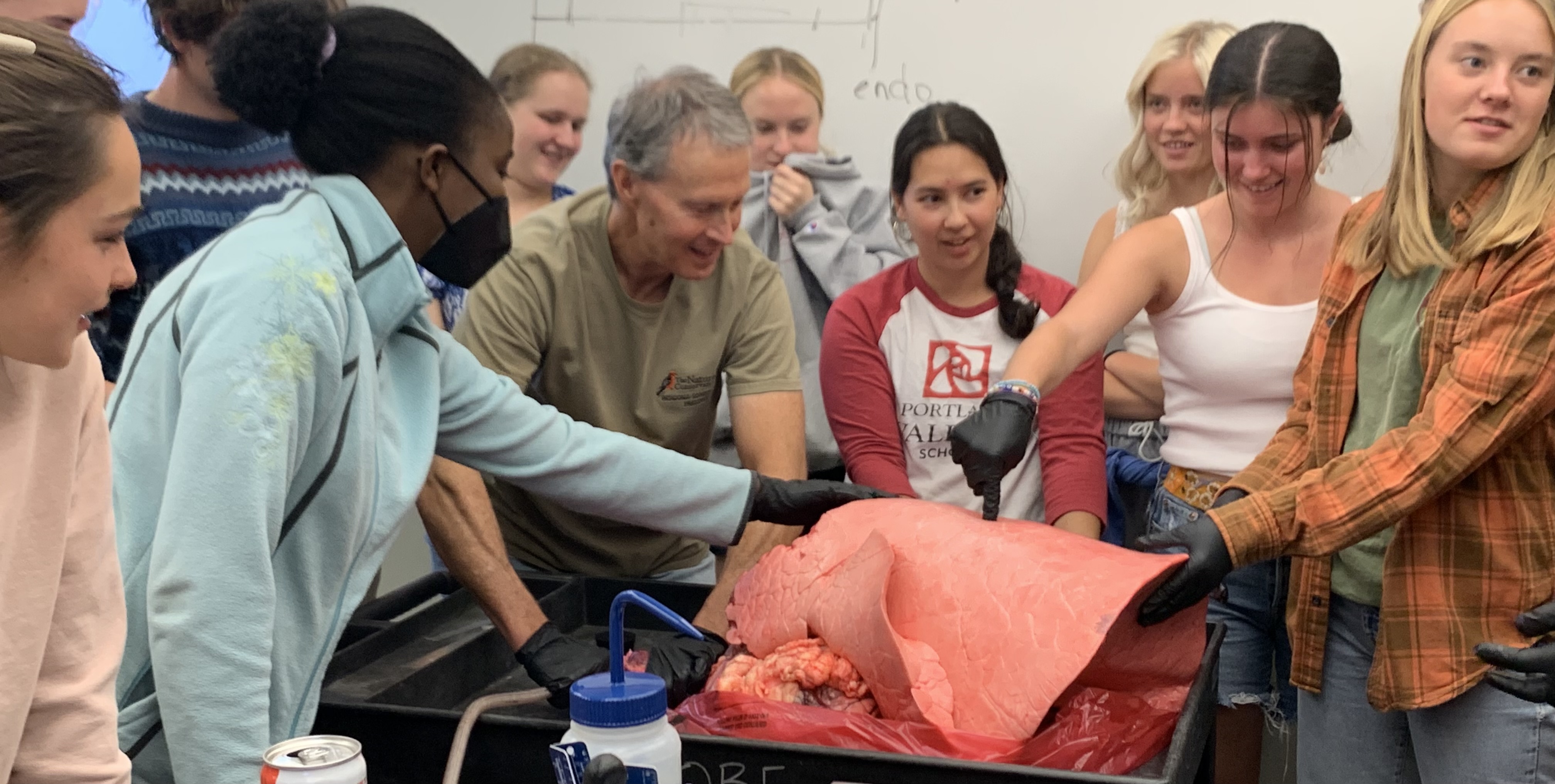Organismal Biology & Ecology
Who We Are
The Organismal Biology and Ecology (OBE) Department studies the structure and function of organisms in an ecological and evolutionary context. OBE encompasses cross-disciplinary approaches such as physiological ecology, evolutionary ecology, systematics, and biogeography, which all provide complementary insights into the processes of evolutionary diversification and adaptation to life on earth. Our research foci include botany, animal and plant ecology, comparative physiology, conservation biology, and molecular ecology. We strive to perform cutting-edge lab and field research and include a diversity of students in these opportunities.
OBE on The Block Plan
The focused three-and-a-half-week course style of the block plan enables our OBE faculty to design field/lab classes and research opportunities that are not possible in traditional school settings. In this context, we create active learning environments that value all voices and promote diversity and inclusion in the biological sciences.
Lab Courses: Our diversity of approaches to studying the structure and function of organisms manifests in a set of lab-intensive courses that provide substantive research opportunities for our students. OBE values the importance of lab skills in an integrative context and courses such as molecular ecology, population genetics, comparative animal physiology, and biogeography expose students to a range of lab skills. Molecular and physiological techniques, as well as computational methods, are taught as collaborative faculty-student experiences, providing skillsets for futures in professional biology.
Field Courses: Our exceptional location is adjacent to rich and diverse ecosystems situated at the range limits of many species of plants and animals. In an east-west direction, the elevation changes from roughly 6,000 to over 14,000 feet on top of Pikes Peak, resulting in a mosaic of ecosystems spanning plains, forests, and tundra; in this wondrous mosaic, we greatly value the indigenous history embedded in the landscape. Many classes take day-long, overnight or multi-day trips to explore sites near and far. Many of these experiences are local day trips, but some of these are camping trips; we also utilize the CC Cabin in the montane pine forests of the Pikes Peak foothills an hour from campus as well as the CC Baca Campus in the San Luis Valley three hours to the southwest. We also offer regular block-long field courses to Belize! In all these field excursions we strive to accommodate students with a range of field experience levels.
Small Class Size: Colorado College limits class sizes to a maximum of 25 students; most field and lab courses have even smaller sizes. This allows each student to receive individual attention and to do investigative projects even in their first biology class.
Research opportunities: Our faculty have active and diverse ongoing research and can also help students develop their own project, e.g. students can receive credit for as many as two mentored research blocks with a professor. We encourage and financially support collaborative student-faculty research projects. These opportunities provide an excellent experience for students interested in graduate school or those planning on becoming part of a research team upon graduation. Our paid research experiences often culminate in publications for students as well as presentations at both regional and national scientific meetings.
Diversity & Inclusion
In our department, we believe everyone is welcome in the classroom, and we aim to create learning environments that support and honor students of all ethnicities, genders, identities, abilities, creeds, and socioeconomic backgrounds. In an ideal world, science would be objective; however, much of science is subjective and is historically built on a small subset of privileged voices. In our classes, our faculty believe integrating a diverse set of experiences is central to the learning process as well as a more comprehensive understanding of science. Thus, we strive to amplify a mix of voices — certainly from every student as well as researchers from diverse backgrounds. Discrimination is not tolerated, and accountability is essential to an inclusive learning environment. We are deeply committed to actively maintaining learning environments free from discrimination that support a diversity of thoughts, perspectives, and experiences.
Land Acknowledgement
We recognize that, in Colorado, we learn, teach, and live on or near the ancestral homelands of the Apache, Arapaho, Cheyenne, Comanche, Pueblo, Shoshone, and Ute tribal nations. We at Colorado College are specifically situated in the traditional territories of the Southern Ute Nation, the Ute Mountain Ute Tribe, and the Northern Ute Peoples. We have a responsibility to acknowledge our indigenous connections — as well as the histories of dispossession and forced removal upon which this institution was founded. Without the sacrifice of these indigenous peoples, we would not have the opportunity to pursue knowledge and experiential learning at Colorado College.






![Island Ecology arriving at Santa Cruz <span class="cc-gallery-credit">[Sydney Morris]</span>](Channel-islands-logo.jpg)
![Caroline Brose '22 checking plots for her summer research with Prof. Roxaneh Khorsand on plant-pollinator interactions of the Alaskan tundra. <span class="cc-gallery-credit">[Lucy Zicarelli]</span>](images/caro_otcs.jpg)
![Flammulated owl nestling from Dr. Brian Linkhart's demography study. <span class="cc-gallery-credit">[Kate McGinn]</span>](_images/gallery/DSC_0553.jpg)
![Dr. Linkhart climbing nest tree for Flammulated Owl study. <span class="cc-gallery-credit">[Eliza Stein]</span>](_images/gallery/DSC_0503.jpg)
![Summer research at the Darling Marine Center, University of Maine. <span class="cc-gallery-credit">[Anita Wray]</span>](_images/gallery/20180809-IMG_6284.jpg)
![Summer research at the Interuniversity Institute of Marine Sciences in Eilat, Israel. <span class="cc-gallery-credit">[Naomi Tsai]</span>](_images/gallery/1954f792-6caa-40d8-b432-54aad0c29cce.jpg)
![Jabaily lab students Caroline Brose '22 and Josh Felton '22 at the BOTANY Conference in Alaska <span class="cc-gallery-credit">[Rachel Jabaily]</span>](images/jabaily_lab_at_botany.jpg)